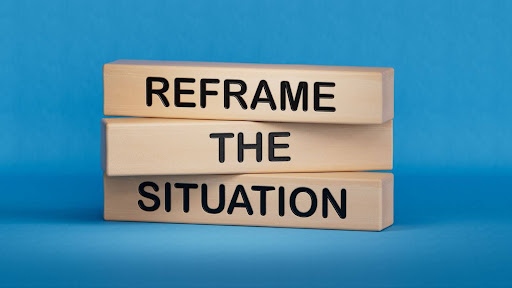Just because it rains, it doesn’t have to pour

Coffee in hand, I sat down to start the day … only to realize my laptop charging cord was still plugged in under the conference room table - 40 minutes away.
And as luck would (or wouldn’t) have it, the weather forecast for the day was not in my favor. Cue the flash flood warnings. Cue the pounding rain. Cue the standing water and traffic delays. Cue the sinking feeling.
My carefully planned day? Totally upended.

And here’s the thing: it wasn’t a crisis. But it was a disruption. A curveball. A change I didn’t choose - which is exactly the kind of situation that can send any of us, especially those of us in the legal profession, into frustration or reactivity. We rely on structure, deadlines, control. When things go sideways, we feel it.
But this time, after a few deep breaths, I caught myself and made a different choice. A choice grounded in emotional intelligence.
From Frustration to Flexibility: What Emotional Intelligence Looks Like in Real Life
In moments like these, emotional intelligence isn't about pretending everything’s fine. It's about:
Self-awareness: Noticing your reaction as it’s happening
Emotional regulation: Choosing how to respond
Perspective-taking: Reframing the situation with flexibility and curiosity
Problem-solving: Making the most of what is, instead of staying stuck in what was supposed to be
That’s the power of cognitive reappraisal, a neuroscience-backed practice of shifting how we interpret a situation so we can change how we feel and what we do next.
Instead of staying in frustration mode, I shifted into what I call “make the most of it” mode.
What That Looked Like:
I switched a Zoom meeting to a phone call and took it from the car.
I used the unexpected drive time to call my dad—something I’d been meaning to do all week.
I took a moment to breathe (in between wiper swipes) and remind myself: This is inconvenient, but not catastrophic.
By the time I got home - soggy cord in hand - it was still a disruption. But I made a conscious choice not to let my frustration spill into the rest of the day. Just because it rained didn’t mean it had to pour.
Despite my own annoyances, I focused on showing up with intention for my meetings, my conversations, and the people who needed me to be fully present.
Why This Matters for Lawyers and Legal Professionals
In law, change and unpredictability are constant - opposing counsel reschedules, clients shift goals, tech crashes. We can’t control every circumstance, but we can control how we respond to those circumstances.
And that’s where emotional intelligence becomes a true differentiator.
When we practice perspective-shifting and calm problem-solving in small moments - like a forgotten charging cord - we build the skills we need for bigger, higher-stakes situations, too.
We strengthen:
-
Cognitive flexibility under pressure
-
Resilience when plans unravel
-
Clearer thinking during stress
-
Leadership presence that signals steadiness to clients and colleagues
This isn’t just about “feeling better.” It’s about performing better, thinking more clearly, communicating more effectively, and modeling emotional steadiness to those around us.
Three Ways to Build This Skill in Your Day-to-Day
- Zoom Out
Ask yourself: Will this matter in a week? A month?
Zooming out activates the reflective part of the brain, helping you shift out of fight-or-flight and into perspective.
- Flip the Frame
Try asking:
What’s one unexpected benefit here?
How can I use this time or challenge differently?
What’s the story I want to tell myself about this?
Changing the narrative changes the experience.
- Choose Your Response
You can’t control the disruption, but you can control your reaction.
Try:
“What would I say to a colleague in this same situation?”
“What’s the next best step I can take right now?”
This kind of reflective self-talk moves you from emotional reaction to intentional action.
Bottom Line
Being emotionally intelligent doesn’t mean you don’t get frustrated. It means you recognize the emotion, regulate it, and respond in a way that aligns with who you want to be, whether that’s a steady leader, a thoughtful colleague, or just a calmer version of yourself on a rainy Wednesday morning.
So the next time your day gets derailed, what’s one reframe or next-best step that might help you regain momentum (or at least your sense of humor)?
As for me, I’ve now added “charging cord check” to my end-of-day routine.
Because once was enough. Twice? That’s a pattern I’m not ready to reframe.

